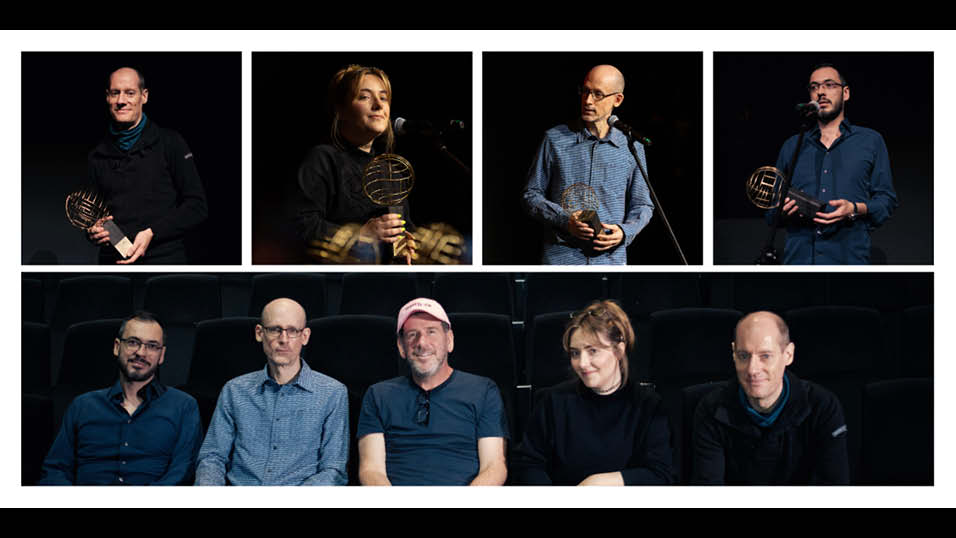There has been a strong bounce back for UK film and high-end TV production in the final three months of 2020, according to new figures published today by the BFI.
Following months of suspended filming during the 2020 lockdown, the final three months of the year recorded a £1.19 billion spend, the second highest spend ever over a three-month period.
Despite disrupted production schedules, production spend for the whole of the year is just 21% down on 2019’s record levels.
Inward investment and co-production films and HETV shows have delivered 76% of the production spend.
The spend on film and HETV production in the UK in 2020 reached £2.84 billion, a 21% decrease on 2019’s levels due to the production hiatus.
Film production
The total spend on feature film production during the year was £1.37 billion. Of this spend, £412.3 million was generated in Q4, 30% of the year’s total spend.
The majority of the total spend, £1.24 billion or 91%, was generated by inward investment films generally in the blockbuster budget range, and co-productions. US-studio backed productions accounted for £1.06 billion
Inward investment films which started production include The Batman (dir. Matt Reeves), Cinderella (dir. Kay Cannon), Doctor Strange in the Multiverse of Madness (dir. Sam Raimi), Fantastic Beasts and Where to Find Them 3 (dir. David Yates), Jurassic World: Dominion (dir. Colin Trevorrow), The Little Mermaid (dir. Rob Marshall), Lockdown (dir. Doug Liman), Mission: Impossible 7 (dir. Christopher McQuarrie), The Northman (dir, Robert Eggers) and Text for You (w/t, dir. Jim Strouse).
As with 2019, the analysis of inward investment productions reveals 12 Indian films including Bell Bottom (dir. Ranjit Tewari), The Chef (dir. Ana Sasi) and Paani Ch Madhaani (dir. Vijay Kumar Arora).
Domestic UK films generated spend of £119.5 million, £89 million less than in 2019 and a 43% decrease on spend from 2019. Films which went into production included Belfast (dir Kenneth Branagh), Benediction (dir. Terence Davies), Boxing Day (dir. Aml Ameen), The Duke (dir. Roger Michell), ear for eye (dir, debbie tucker green), The Fantastic Flitcrofts (dir. Craig Roberts), The Forgiven (dir. John Michael McDonagh), Mothering Sunday (dir. Eva Husson), Pirates (dir. Reggie Yates), Quant (dir. Sadie Frost), True Things About Me (dir. Harry Wootliff), The Score (dir. Malachi Smyth) and What’s Love Got To do With It? (dir. Shekhar Kapur). Co-productions included Ballywalter (dir. Prasanna Puwanarajah) and My Son (dir. Christian Carion).
High-end television production
The spend on HETV production in the UK in 2020 was £1.49 million, just 11% lower than the £1.67 million reported for 2019 (updated mid-year to £2.09 billion and the highest HETV spend on record). Inward investment and co-production HETV accounted for £1.13 billion or 76% of the total HETV spend. Even allowing for the impact of the pandemic on halting production activity, the 2020 spend is the second highest on record. Inward investment HETV productions included Anatomy of a Scandal (dir. SJ Clarkson), Andor (dir. Toby Haynes), Becoming Elizabeth (dir. Justin Chadwick), The Girlfriend Experience – series 3 (dir, Anja Marquardt), Godmothered (dir. Sharon Maguire), Hanna – series 3 (dir. Sacha Polak), Pennyworth – series 2 (dir. Danny Cannon), The Pursuit of Love (dir. Emily Mortimer), The Sandman (dir. Jamie Childs), War of the Worlds – series 2 (dir. Richard Clark), The Witcher – series 2 (dir. Stephen Surjik).
Domestic HETV productions accounted for £357 million only 4% less than the £372 million for 2019 (updated mid-year to £482 million). 2019 domestic HETV productions included Bloodlands (dir. Pete Travis), Call The Midwife – series 10, Cobra – series (dirs. Hans Herbots, Al Mackey), Doctor Who – series 13, Finding Alice (dir. Roger Goldby), Grace (dir. John Alexander), Line of Duty – series 6 (dir. Daniel Nettheim), The Pact (dir. Rebecca Johnson), The Pembrokeshire Murders (dir. Marc Evans), My Name is Lizzie (dir. Niall MacCormick), Roald and Beatrix – The Tail of the Curious Mouse (dir. David Kerr), The Syndicate – series 4 (dir. Kay Mellor) and Worzel Gummidge- Saucy Nancy (dir. Mackenzie Crook).
Animation television
The spend on animation programme production in the UK in 2020 was £61 million which is 55% higher than the total reported in January 2019 (later updated to £65.3 million). Of the total spend £16.2 million or 26% was generated by domestic productions and £44.8 million or 74% by inward investment and co-production programmes. 2019’s overview showed domestic animation contributing the majority share of spend at 51%. Animation titles starting production in 2020 included inward investment and co-production titles Deadlandia – series 1, Chip and Potato – series 2 and Robin Robin. 2020 domestic animation projects included Milo, Quentin Blake’s Clown and The Rubbish World of Dave Spud – series 2.
The UK spend and production data published today are interim results which is updated in the coming period as final reporting is received.
Box office figures obviously took a big hit as distributors rescheduled cinema releases or released or premiered on VOD platforms, eg Trolls World Tour, Scoob!, Artemis Fowl and The SpongeBob Movie: Sponge on the Run.
The highest grossing film released in 2020 was Sam Mendes’s UK/USA film 1917, with £44 million, followed by Jeff Fowler’s Sonic the Hedgehog (£19 million) and Christopher Nolan’s UK/USA Tenet (£17 million).
Guy Ritchie’s The Gentlemen was the highest grossing independent UK film of 2020 grossing £12 million, followed by Autumn de Wilde’s Emma (£7 million) and Armando Iannucci’s The Personal History of David Copperfield (£6 million).
Culture Secretary Oliver Dowden said: “These impressive figures show the resilience and creativity of the UK screen industries. We’re getting our screen industries firing on all cylinders again with the Government’s Film and TV Restart Scheme and £1.5bn Cultural Recovery Fund which has awarded £30 million in lifeline grants to independent cinemas. I am pleased that the Government’s targeted interventions mean this sector is well placed for future strong growth and job creation.”
Ben Roberts, BFI Chief Executive, said: “After an unbelievably tough year, today’s figures show an incredibly vibrant and positive picture for film and TV in the UK. Last spring it was hard to imagine that we would be generating £1 billion worth of production activity in the final quarter which has been achieved by industry and government pulling together and the determination of our workforce to get back up and running. This sector is primed to grow with expansion underway in studios and production hot spots across the UK, delivering more jobs and more to the economy. It’s been a challenging year for cinemas but we remain optimistic for the day whne we can welcome back audiences and it’s brilliant to see some of the UK’s greatest talent making big pictures such as 1917 which topped the box office before the pandemic hit.””
Adrian Wootton OBE, Chief Executive of the British Film Commission, said: “As today’s figures show, production recovery in the UK is well underway and demand for content is not only still there, but in fact greater than ever before. Our sector, like many, has faced unprecedented challenges, but thanks to the sheer talent of our workforce and the creative and technological innovation of our companies and infrastructure, we were swift in developing ways of continuing to produce outstanding content. Film and high-end TV have an important role to play in the UK’s economy, providing UK plc with billions of pounds into the nations and regions and supporting hundreds and thousands of jobs.”
Jon Creamer
Share this story
















